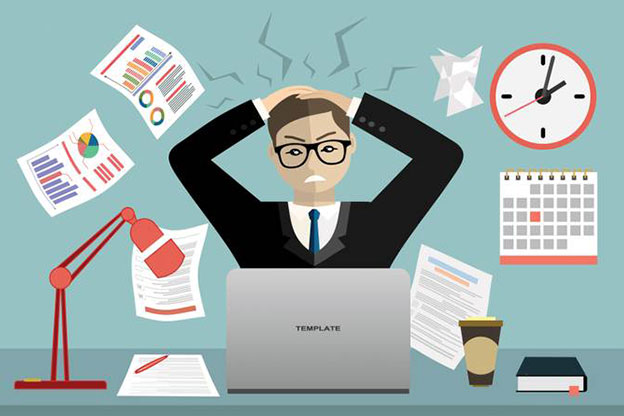- Empty cart.
- Continue Shopping
Effective Ways to Manage Stress

Stress is an unavoidable part of life. Whether it’s due to work, relationships, or personal challenges, everyone experiences stress at some point. However, how you manage stress can make a significant difference in your overall well-being.
Understanding Stress
Before we dive into strategies for managing stress, it’s essential to understand what stress is and how it affects the body and mind. Stress is the body’s natural response to a perceived threat or challenge. When faced with stress, the body releases hormones like cortisol and adrenaline, which prepare you to either fight or flee from the threat – a mechanism often referred to as the “fight or flight” response.
While this response can be lifesaving in certain situations, prolonged or chronic stress can have detrimental effects on your health. It can lead to physical symptoms such as headaches, muscle tension, and digestive problems, as well as emotional symptoms like anxiety and depression.
Identifying Stressors
The first step in effectively managing stress is identifying the sources of stress in your life. Stressors can be external, such as work deadlines or financial pressures, or internal, such as self-imposed expectations and negative thought patterns. By pinpointing the specific stressors, you can develop targeted strategies to address them.
Time Management
One of the most common sources of stress is feeling overwhelmed by a lack of time. Effective time management can significantly reduce this type of stress. Here are some strategies to help you manage your time more efficiently:
- Prioritize Tasks: Make a list of tasks and prioritize them based on importance and deadlines. Focus on completing high-priority tasks first.
- Set Realistic Goals: Avoid setting yourself up for failure by setting unattainable goals. Be realistic about what you can accomplish in a given timeframe.
- Use Time-Blocking: Allocate specific blocks of time for different tasks and stick to the schedule. This can help you avoid multitasking, which can increase stress.
- Learn to Say No: Don’t overcommit yourself. It’s okay to say no to additional responsibilities when you’re already stretched thin.
Relaxation Techniques
Relaxation techniques can help calm the mind and reduce the physical symptoms of stress. Incorporate the following practices into your daily routine:
- Deep Breathing: Take slow, deep breaths to activate the body’s relaxation response. Inhale deeply through your nose, hold your breath for a few seconds, and exhale slowly through your mouth.
- Meditation: Regular meditation can help you stay present and reduce anxiety. Find a quiet place, sit comfortably, and focus your attention on your breath or a calming mantra.
- Progressive Muscle Relaxation: This technique involves tensing and then relaxing different muscle groups in the body, promoting physical relaxation.
- Yoga: Yoga combines physical postures with deep breathing and meditation, making it an excellent stress-relief practice.
Physical Activity
Exercise is not only good for your physical health but also for managing stress. When you engage in physical activity, your body releases endorphins, which are natural mood lifters. Regular exercise can also improve your sleep, boost your self-esteem, and provide a healthy outlet for stress.
Find an activity you enjoy, whether it’s jogging, swimming, dancing, or practicing a sport. Aim for at least 30 minutes of moderate exercise most days of the week.
Healthy Eating
Your diet plays a crucial role in how your body responds to stress. Certain foods can exacerbate stress, while others can help alleviate it. Here are some dietary tips for managing stress:
- Limit Caffeine and Sugar: Excessive caffeine and sugar intake can lead to jitteriness and anxiety. Reduce your consumption of coffee, soda, and sugary snacks.
- Eat a Balanced Diet: Consume a variety of fruits, vegetables, whole grains, lean proteins, and healthy fats. These foods provide essential nutrients that support your body’s stress response.
- Stay Hydrated: Dehydration can increase stress levels, so make sure you’re drinking enough water throughout the day.
- Moderate Alcohol Intake: While some people turn to alcohol to cope with stress, it’s essential to moderate your alcohol consumption, as excessive drinking can worsen stress and lead to other health problems.
Social Support
Don’t underestimate the power of social connections in managing stress. Spending time with friends and family who provide emotional support can be incredibly comforting. Talking about your feelings and concerns with someone you trust can help you gain perspective and feel less alone in your struggles.
Mindfulness and Mind-Body Practices
Mindfulness involves paying full attention to the present moment without judgment. It can help you become more aware of your thoughts and feelings and prevent the mind from dwelling on past regrets or future worries. Mindfulness-based practices, such as mindfulness-based stress reduction (MBSR) and mindfulness-based cognitive therapy (MBCT), have been shown to be effective in reducing stress.
Seek Professional Help
If stress becomes overwhelming and begins to interfere with your daily life, seeking professional help is a wise decision. A mental health professional, such as a therapist or counselor, can provide you with coping strategies, emotional support, and tools to manage stress effectively. In some cases, medication may also be recommended.
Lifestyle Changes
In addition to the strategies mentioned above, consider making some lifestyle changes to better manage stress in the long term:
- Get Adequate Sleep: Lack of sleep can increase stress levels. Aim for 7-9 hours of quality sleep per night.
- Limit Screen Time: Excessive screen time, especially before bedtime, can disrupt sleep patterns and increase stress. Set boundaries for your screen use.
- Practice Gratitude: Focus on the positive aspects of your life by keeping a gratitude journal. Write down things you’re thankful for regularly.
- Engage in Hobbies: Pursue hobbies and activities that bring you joy and relaxation. It’s essential to have interests outside of work or daily responsibilities.
In Conclusion, Stress is an inevitable part of life, but it doesn’t have to control you. By implementing these effective strategies for managing stress, you can regain control over your physical and emotional well-being. Remember that managing stress is an ongoing process, and what works best for you may evolve over time. Experiment with different techniques, and don’t hesitate to seek professional help if needed. With the right tools and support, you can lead a happier, healthier, and less stressful life.








